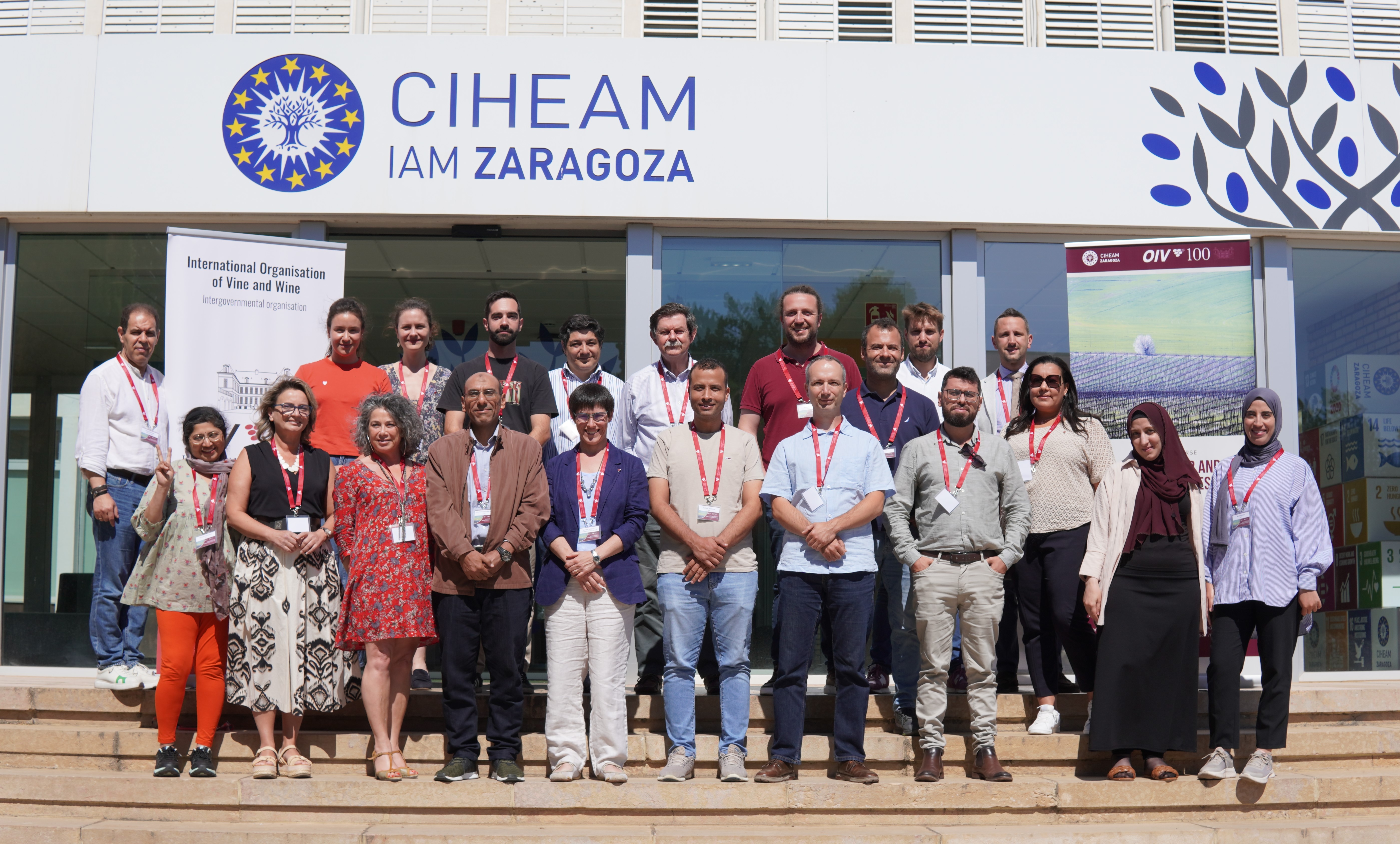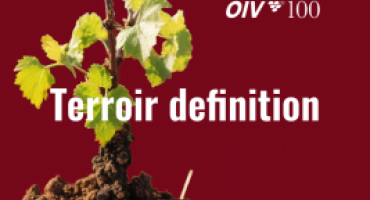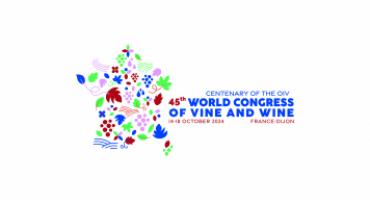The advanced course on “sustainable water and soil management for resilient viticulture”, organised jointly by the International Organisation of Vine and Wine (OIV) and the International Centre for Advanced Mediterranean Agronomic Studies (CIHEAM), took place from July 1 to 6 at CIHEAM Zaragoza, Spain.


45 students from 22 different countries gathered in Zaragoza, Spain, to attend this high level training focused on technical and scientific aspects behind the sustainable water and soil management for resilient viticulture.
The course was inaugurated by Raúl Compés López, Director of CIHEAM Zaragoza, who welcomed participants, by emphasising the collaboration between the two intergovernmental organisations and by remarking how science is a common language for the purpose of harmonisation and cooperation. The OIV Director General, John Barker, through his video message, underscored the importance of such advanced training, considering the growing concerns of the vitivinicultural countries for the limited availability in water sources and for the preservation of the soil structure and soil fertility. It has been a great occasion for both Directors, to recognise the past fruitful cooperation between CIHEAM and the OIV, which was established in 1973 through the organisation of the "Cours Supérieur International de Viticulture". The longstanding cooperation was reinforced by the 2023 Memorandum of Understanding stating the need to intensify the teamwork to face new challenges in the agri-food system, as well as the engagement in 2006 for the joint implementation of a scientific session at COP 27 and for the organisation of the advanced course on the resilience of viticulture.
Learning sustainable water and soil management is essential
Vitivinicultural regions are now confronting the realities of climate change, leading to significant shifts in their traditional viticultural practices. Given the increasing unpredictability of water sources and changing soil dynamics, sustainable water and soil management has never been more critical. As global temperatures rise, vineyards face the double challenge of ensuring adequate water supply and maintaining soil health. This is further complicated by the push towards expanding viticulture, with many new vineyards being established in regions with different water availabilities and soil structures.
The course aimed to equip participants with the knowledge and tools necessary for sustainable viticulture management, emphasising the delicate balance between soil health and water conservation.
By the end of the course participants gained a good overview on:
-
A comprehensive understanding of the challenges and implications of water scarcity in vineyards, particularly under the changing climate dynamics.
-
Insights into the intricate balance of soil-water relationships, exploring the soil-plant-atmosphere interactions crucial for grapevine health.
-
Mechanisms of the ecophysiological responses to various water and soil conditions, carbon exchange and the implications these have on grape quality and yield.
-
To be equipped to identify sustainable strategies (environmental, social and economic) for soil and water management in viticulture.
-
Knowledge regarding the potential and limitations of using alternative water sources, such as reclaimed or treated water, and salinity management for vineyard irrigation.
-
Updates on cutting-edge technologies in carbon sequestration.
The course was given by the following qualified lecturers from international organisations, and from universities and research centres in different countries:
-
Enrico Battiston, OIV
-
Ignacio Belda, Universidad Complutense de Madrid (Spain)
-
Marcella Biddoccu, National Research Council of Italy (CNR) (Italy)
-
Marco Contin, University of Udine (Italy)
-
Alain Deloire, formerly Institut Agro Montpellier (France)
-
Aaron Fait, Ben-Gurion University of the Negev (Israel)
-
Matteo Gatti, Univ. Cattolica del Sacro Cuero in Piazenza, Milano (Italy)
-
Joan Girona, IRTA, Lleida (Spain)
-
Naftali Lazarovitch, Ben-Gurion University of the Negev (Israel)
-
Luís Marcos, ADVID, Vila Real (Portugal)
-
Andrea Pitacco, Universita Degli Studi Di Padova (Italy)
-
Gonzaga Santesteban, Universidad Púlica de Navarra (Spain)
-
Hans Reiner Schultz, Hochschule Geisenheim University (Germany)
During the course, students have been able to interact with lecturers by discussing case studies and by also presenting experiences and challenges about the experience on the water and soil management in vineyard in their country of origin.
The training was closed by delivering the certificate of attendance to the students, which have had then the opportunity to make two filed trips in the Aragone wine region, to visit vineyards implementing novel strategies for the sustainable management of water and soil.

